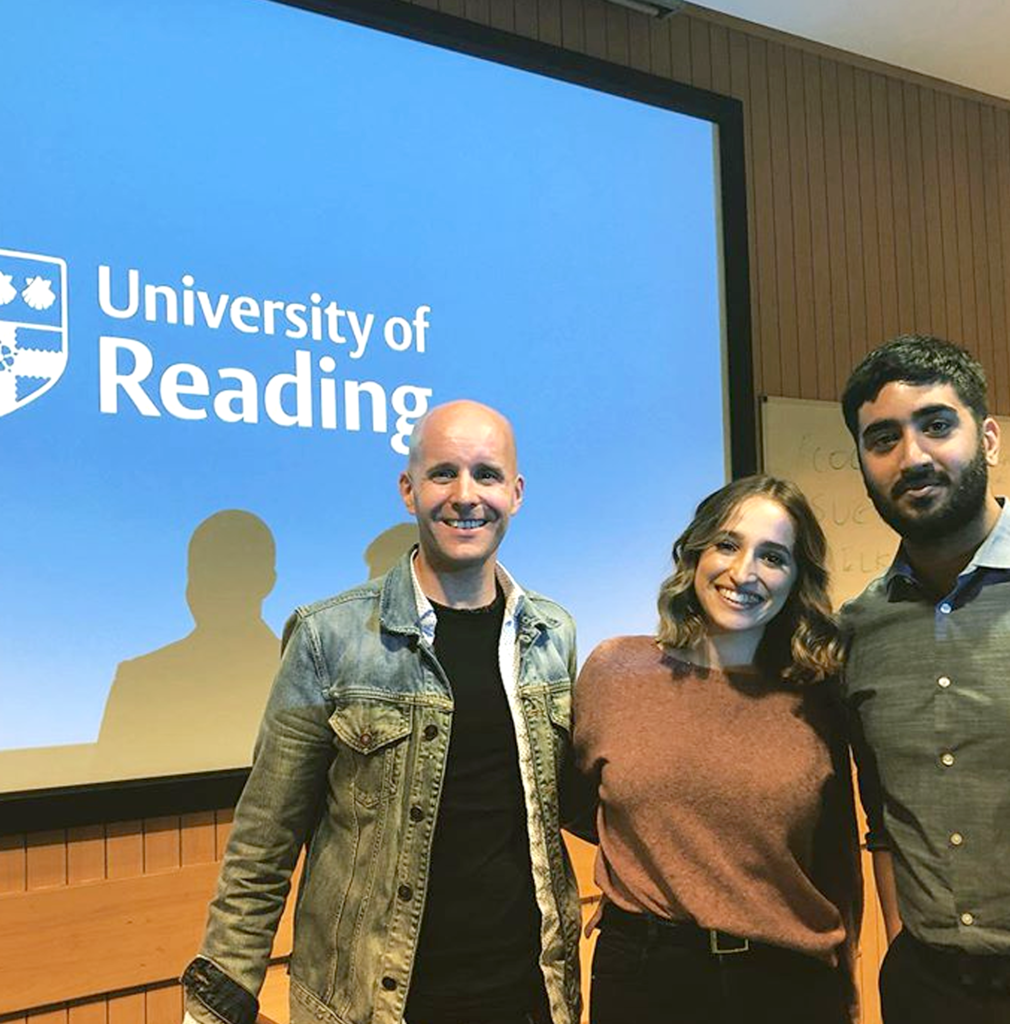Three graduates of the Department – Carmen Martinez-Freile, Neil Linford-Relph and Aman Verma – returned last week to talk about their experience with UI and UX design. Although the term UX is relatively recent, It was great to see that we’ve been generating professionals in the field for decades.
Carmen Martinez-Freile
Carmen, who works at Fruto, provided tips stemming from her own design experience – both as a student and as a professional. As a recent graduate, she was very relatable to Part 1 students, who will be thinking about the their first UX projects shortly. She emphasised the importance of high attendance, going to optional talks, and pushing yourself creatively – not just focussing on the style of work that you are most comfortable with. Carmen also talked about processes such as user journeys, wireframing, prototyping, emphasising the importance of planning. And of course, the centrality of the user was a theme throughout. Our students work on app and mobile website design projects across all three years, so Carmen’s talk helped provide a clear picture of her approach to working on such projects, as well as where a career in this area can take us.

Neil Linford-Relph
Neil’s work was also very interesting, especially his involvement in the creation of the first Barclays’ iPhone app. His experience of the increased awareness of the importance of ‘design’ within large companies was encouraging, and really emphasised teamwork, as designers now work alongside all stakeholders – like managers, customers and IT staff. Like Carmen, Neil emphasised how the production (and ultimately the success) of a company’s app is heavily influenced by the users response to it. He also highlighted the tension between what users tolerate (for example, with regard to in-app adverts) compared to what they actually seek from an app (which is, after all the reason they downloaded it). His user research sessions are often a way to show company executives that there is value in delivering on a promise, rather than front-loading with ads. As a result, within the Typography students’ own projects, it encourages us to really focus on the user, aided by planning tools such as persona analysis. Clients may tell you specifically what they want from a project, but ultimately they need users to be engaged. Design and UX professional provide a valuable role in bridging this gap effectively.
Aman Verma
Aman, who works at Orange telecom, stressed the importance of communication with his stakeholders. This was especially important in his current role, as many of his team them work in France, with weekly conference calls required to fold them into the decision making. He also emphasised the importance of students gaining a familiarity with programmes used by professional practitioners, like Keynote, InVision and Sketch, to gain a head start. As with Carmen and Neil, Aman placed high value on planning the functionality of an app, analysing users and competitors, and identifying pain points through empathy and testing. By engaging in this approach, we can help identify pitfalls and generate imaginative solutions.
These speakers gave a great sense of how they felt and why they succeed in their jobs, providing an insight into working in the industry. These talks were particularly useful as they made the point that a user-centred process is appropriate for almost all design projects, not just those that are explicitly ‘digital’. The overall message we took away was about being user-focussed and collaborative. This was really well received by the attending students, and runs counter to some preconceptions that designers simply review a problem and magic some ‘creative’ answers out of nowhere. Designers need empathy, listening skills and communication skills as much as they need anything else.
UX Workshop and portfolio review
After the talks, there were optional workshops for a small group of people. Carmen ran a portfolio session while Neil led a UX workshop. Neil’s workshop was particularly useful and unique, allowing a team of our most engaged students to gain an understanding of the processes used in real life design industries, as well as seeing the quality of thought and level of work required to really make UX count. As emphasised by Carmen, attending optional sessions like these is game changing, as it helps you gain an understanding of real-life work, team work, and as well as being very relevant to taught projects.
These are enjoyable sessions, without pressures of big groups, or getting things wrong, allowing you to improve on skills. We’re hugely grateful to our Aman, Carmen and Neil for sharing their expertise with a new generation of Reading students.


